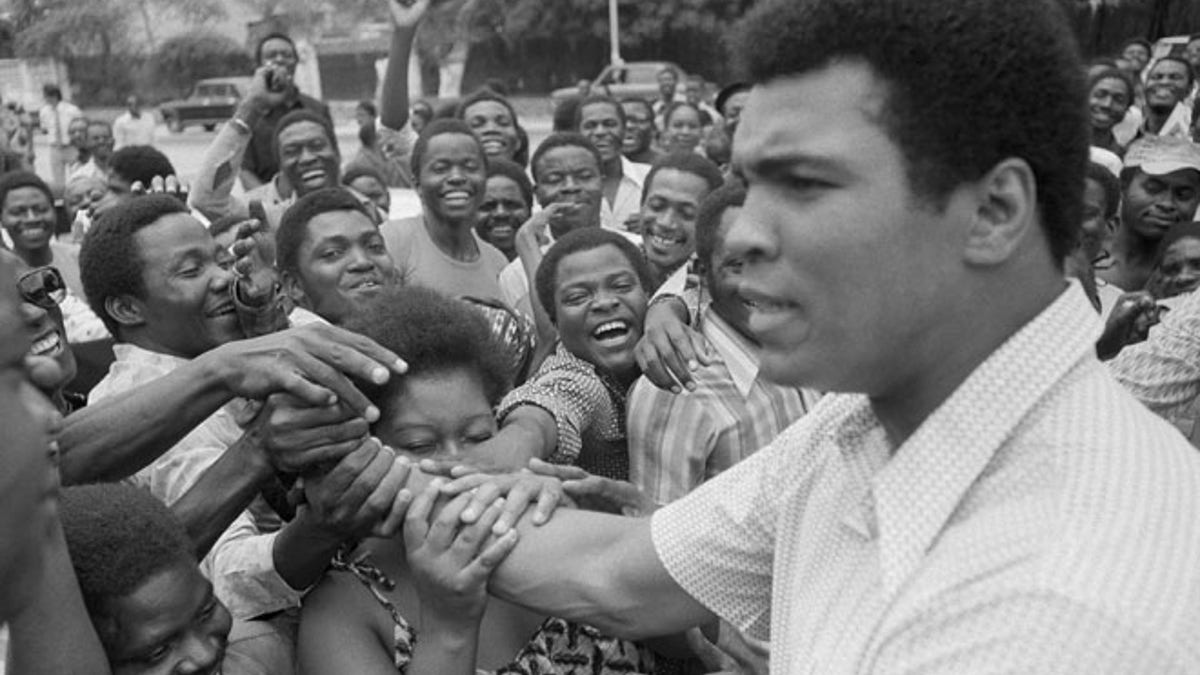
In this Sept. 17, 1974, file photo, Muhammad Ali is greeted in downtown Kinshasa, Zaire (AP Photo)
I am five years younger than Muhammad Ali. I first saw him fight as Cassius Clay, in the 1960 Olympics. I loved his style in the ring and out of it.
Clay became Ali, the first truly famous American Muslim. He refused, on religious grounds, to be drafted into the military. Ali paid a huge price--he lost his title at the peak of his abilities. Worse, he had every reason to think that he was permanently sacrificing his art and his livelihood for principle. It was a breathtaking act of moral courage.
During his exile from the ring, Ali became a darling of the European Left. He was often invited to speak out against the war in Vietnam and American racism, which he did, eloquently. But he was too honest to become anyone's propagandist.
Shortly after the Six Day War, Ali was interviewed by a snarky French journalist who invited him to denounce Israeli aggression. Ali declined. "I got nothing bad to say about Israel," he said (I paraphrase from memory).
Ali paid a huge price--he lost his title at the peak of his abilities. Worse, he had every reason to think that he was permanently sacrificing his art and his livelihood for principle. It was a breathtaking act of moral courage.
Clearly nonplussed, the interviewer repeated his question in simpler words. How could Ali--a Muslim follower of the anti-Semitic Nation of Islam, not hate the Zionist aggressor?
Ali countered with a right cross to the mouth. "You think I'm nothing but an uneducated so-called Negro who's gonna say words you put in my mouth. But I've got nothing against Israel or any Jewish people. Allah doesn't teach hate."
After his final retirement, already noticeably impaired by Parkinson's Disease, Ali was misquoted by "guerrilla journalists" on Zionism during a trip to Lebanon. He denied it and he was believed. When he arrived in Israel, he was welcomed as a hero.
As his disease grew more profound, Islamic activists occasionally exploited Ali's near inability to speak by putting words in his mouth. But his actions spoke for him. One of his last public appearances was in a Philadelphia synagogue where he attended the bar mitzvah of his Jewish grandson, Jacob Wertheimer.
As a fighter, Ali famously dubbed himself "the greatest." So he was, the greatest of all time. But he was an even greater man--one of the finest and most inspirational men of my generation.
